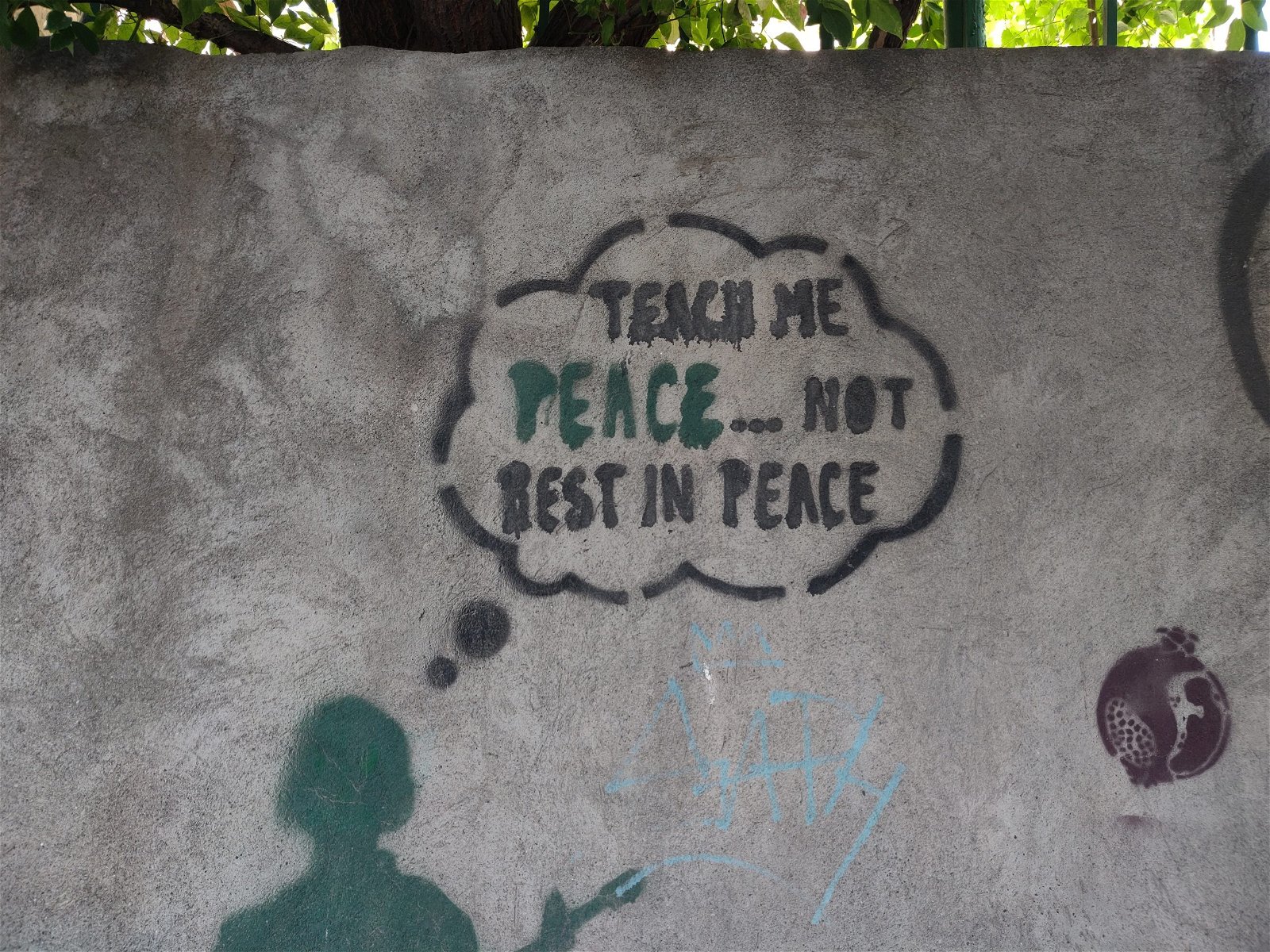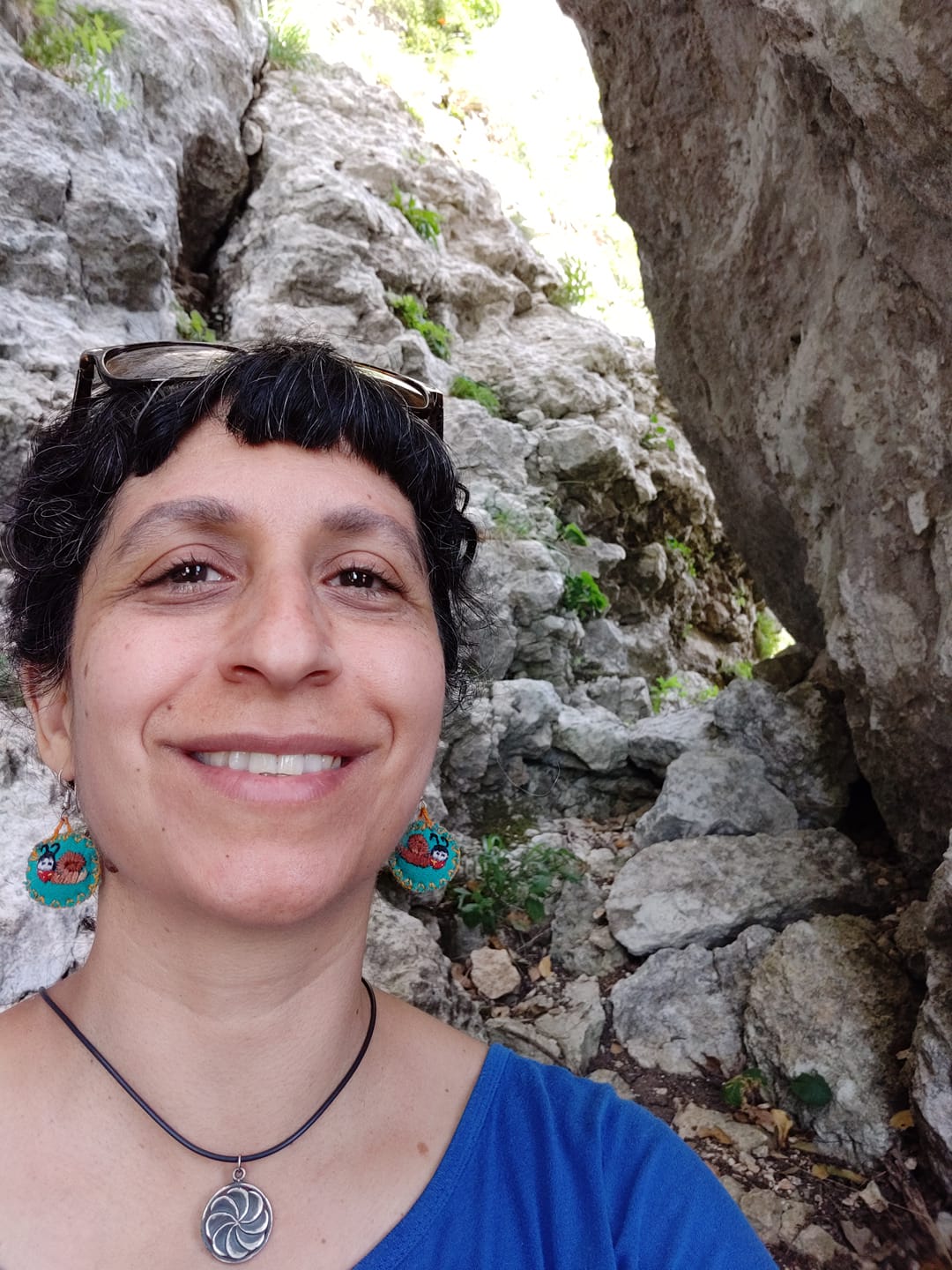
In May, during an online workshop on transforming trauma, the facilitator (who happens to be Armenian) presented a seemingly simple question, “What is the opposite of fear?” In response, one participant jumped in with “trust,” another offered “faith” and a third tendered “courage.” Though I imagined the facilitator had something a bit different in mind, I could not guess what it was.
With a smile, she asked us to consider that “the opposite of fear is curiosity.”
She acknowledged that responding to today’s existential crises with curiosity is not easy. We are at war with forces which continually seek to take everything we have. Curiosity takes practice, she says, and a daily recommitment to defending possibilities of a future for ourselves, our families and our communities. I agree.
Yet, dread can overshoot other considerations, with Azerbaijan’s continued military aggressions including the refusal to release more than 200 Armenian POWs, the worsening of brutalities against Palestinians, large-scale atrocities in Ethiopia, anniversaries and ongoing incidents of racial violence in the US, global COVID vaccine inequities, the imminent and chaotic snap election in Hayasdan…
There must be another way to experience the fullness of life, from the beauty to the hurt and everything between.
Spiritually grounded social justice leaders often suggest taking a step back each day and starting anew, questioning our assumptions and acknowledging we are dwelling at the knife’s edge of uncertainty. Not-knowing, “letting go of fixed ideas about yourself, others, and the universe,” is the first of Three Tenets of the Zen Peacemaker Order co-founded by Zen Buddhist teacher and activist Roshi Bernie Glassman in the 1990s. Even with today’s dizzying array of traumas and transformations, pioneering restorative justice practitioner and 2019 MacArthur Fellow sujatha baliga proposes that we stretch this idea of not-knowing further. She practices approaching each moment with friendly curiosity, no matter what.
It’s not easy to see what is happening, or to feel what we see, without feeling helpless. When being curious about harm is beyond my reach, I look for what I can be curious about. Lately, doing so has revived an old question worth revisiting: what is the opposite of denial?
This inquiry is a way of seeking something beyond and in addition to demanding acknowledgment and repair from the Turkish and Azerbaijani states, as much as our bones and blood cry out for justice for historic and ongoing crimes against us. Rather, I want at least one response to denial which can bring agency to me, to our people, and to anyone who has experienced profound harm, particularly when compounded by the denial of it by the very people who committed it or who benefit from it. I want a path forward which I and we can choose, one which is not solely dependent on the inclinations and (in)actions of others.
Earlier this month, I was invited to spend a day with children displaced from Karvachar, now resettled in homes throughout Hayasdan but separated from one another. At the start of spring, I had brought one of Glassman’s books to Hayasdan on intuition, where it sat buried for a spell under collections of Armenian poetry. The day I was to meet the children, I finally reopened the book and saw what I needed to see.
“We can’t heal ourselves or other people unless we bear witness…to the wholeness of life, to every aspect of the situation that arises,” Glassman advises. I think of it as walking with open eyes and hearts, and feeling what we see, in order to promote healing and ethical restoration. “Bearing witness is a dangerous business. Once we start it’s hard to stop. [It] often starts with a single encounter, a single witnessing. Soon there’s a second and a third. After a while, we can’t look away.”
That morning, I couldn’t look away from the book. There it was, an invitation to relearn an empowering way forward, an answer to my question. According to Glassman, the opposite of denial is bearing witness.
For Armenians and other targeted groups, denial may always be a charged word. In our case, Turkish authorities’ practices of denial have harmed the course of countless lives, and not just ours. All Turkish citizens are denied a full reckoning with their own living history, as are the people of Azerbaijan at the hands of their government.
As much as external forms of denial are inseparable from current and historic Armenian struggles, my primary concern at present is not with empires and nation-states. Rather, it is with the levels of internalized denial, hate and other fractures that I am witnessing daily in Hayasdan, as in nearly every Armenian community I have encountered in the US, including my own family of immigrants. Aggressive behaviors erupting at the slightest provocation, a lack of mutual respect and relational repair, and denial of lived experience were already commonly present. With each passing day, the June 20 snap election looms larger, and the Republic of Armenia’s fate seems to hang in the balance between unpalatable options in an election saddled with fear, bribery and other corruptions, and cults of personalities.
Hatefully lashing out at one another has become so normalized I do not know what will become of us. While I understand this as being rooted in our open wounds, I believe our survival depends on rebuilding healthy ways of being, be it one stone at a time if that’s all we have left to work with. I believe in our capacity for love even in the darkest of times, and this, too, I witness daily.
The children from Karvachar still see each other and their beloved teacher online twice a week in virtual classes which began before the war due to COVID. They also have occasional days together in-person, such as the one I joined, when fun and educational day trips can be arranged. Their shining eyes and tender hugs of greeting carry the weight and hope of the world, and their laughter is even more infectious than the virus.
As long as they stay connected, they say, they have not completely lost Karvachar. These are children whose families found agency in burning their homes last fall when they were forced to leave. Though witnessing all this with friendly curiosity seems far from possible, I recall the words of the friend who had co-organized their reunion and invited me along:
“We must be able to look into the eyes of this generation,” she says. We must bear witness to what is and what could be.
Author’s Note: The book referenced above is Bearing Witness: A Zen Master’s Lessons in Making Peace by Bernie Glassman (1998). It’s filled with powerful teaching stories of bearing witness within, on the streets of New York, at Auschwitz and beyond.



Brave and thoughtful words.
This is our real work – to cultivate openness and curiosity that can invite our own healing and our people’s.
Your words are also courageous because some people believe that hatred and anger must be our only response as the way forward and they see anything else as a betrayal of our past. But how well are hatred and anger working for us?
May I amend my comment by saying that our anger is totally justified. I don’t mean to disrespect those natural feelings of rage at our injustices or imply it is wrong to be angry.
But I do feel we are wise to consider the way forward and ask ourselves if – while seeking justice on the one hand – we could also benefit on the other hand from healing our pain by looking at it through the lens of trauma recovery.
Dear Elise,
Your writings reveal a depth of courage
and compassion necessary to “ Bearing Witness
to the joy and suffering of the world.” Words can not express how grateful I am to be here, open to seeing with “new eyes.”